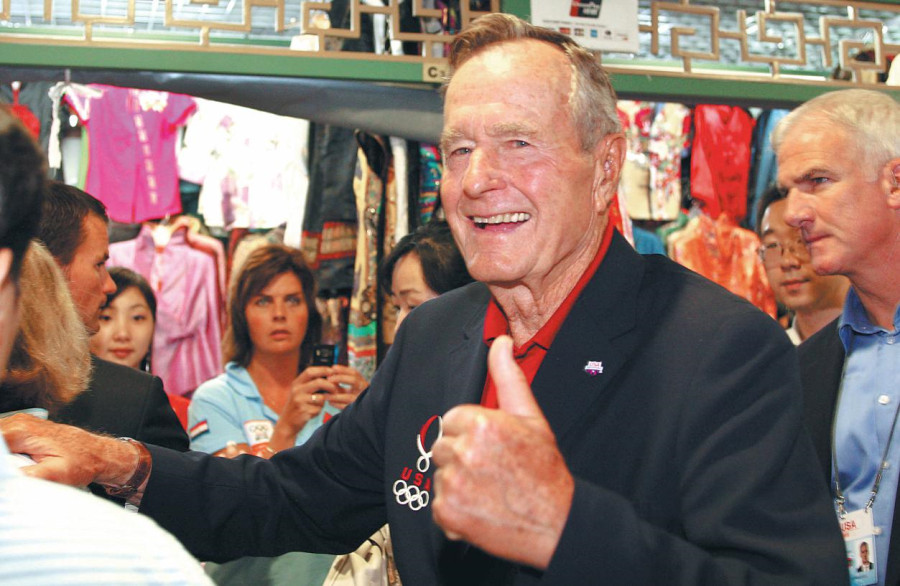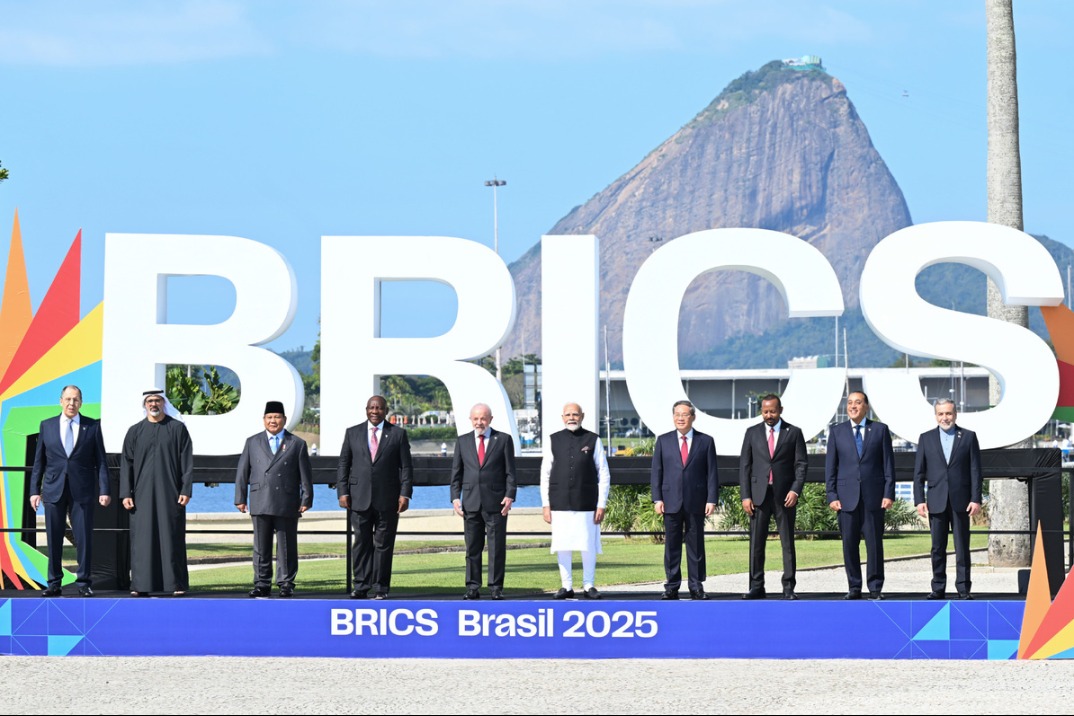How Bush drew China, US closer


Craving change
In the preface to the published diaries, Bush described the decision to go to China in 1974 as one "that not only profoundly changed my life, but would forever change my view of the world, particularly of the land then called 'The Sleeping Giant'".
At that time, Richard Nixon had just resigned as US president due to the Watergate scandal, and Bush was eager to leave his job as chairman of the Republican National Committee.
"Never in our lives, before or since, have Barbara and I craved change more. We wanted out of Washington and as far away as possible from the ugliness of Watergate. We also wanted both a new adventure and a new challenge," Bush wrote.
When then-president Gerald Ford asked him to choose between an ambassadorship either to London or Paris, Bush said he shocked Ford and his own family when he asked if he could go to China.
"The look I got was reminiscent of 1948, when I broke the news to friends and family that I had turned down a job on Wall Street and that Barbara and I were moving to West Texas," he wrote, referring to the decision he made after graduating from Yale University that year with a Bachelor of Arts in economics.
To Bush, the reasoning was quite simple — it was obvious then that Asia would rise in importance on the world scene. And it was inevitable that China would eventually become a power broker, not only in the Pacific but in the world. China was, quite simply, the place to be.
Meacham's book had a somewhat different account. Bush was going to China after being turned down by Ford for other higher positions such as vice-president, commerce secretary and White House chief of staff.
However, Meacham described the China experience as "an honors class in diplomacy and politics for Bush, an education in the realities of subtlety, respect and indirection so often fundamental to relations between nations".
"In Congress and at the United Nations, Bush had learned that diplomacy required personal connection. In Beijing, he learned that it also required persistence and patience — particularly patience, which was not his strong suit," Meacham wrote.
"The man who came to China liked action, movement, phone calls, results. The man who left China understood that diplomacy was a long game and that change could come rapidly or glacially depending on the circumstances of a given country and given situation," Meacham added.
Engel echoed the view in his book, saying that Bush's time in China played a central role in his diplomatic education.

































